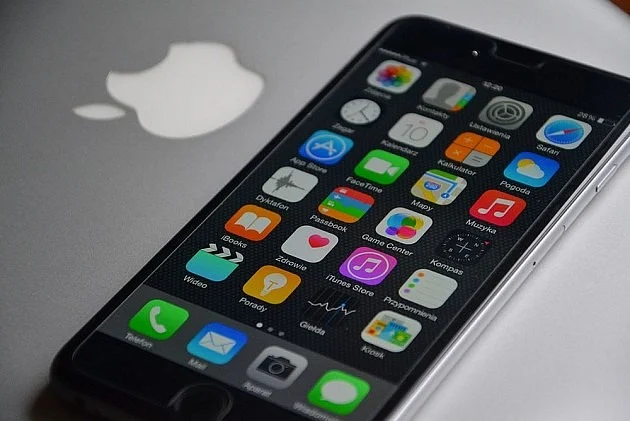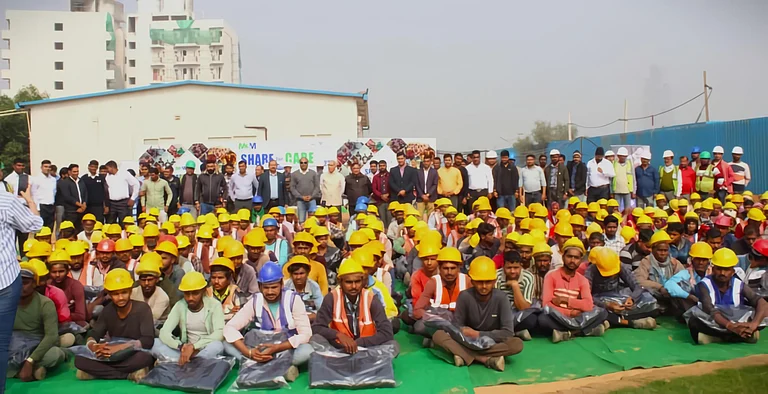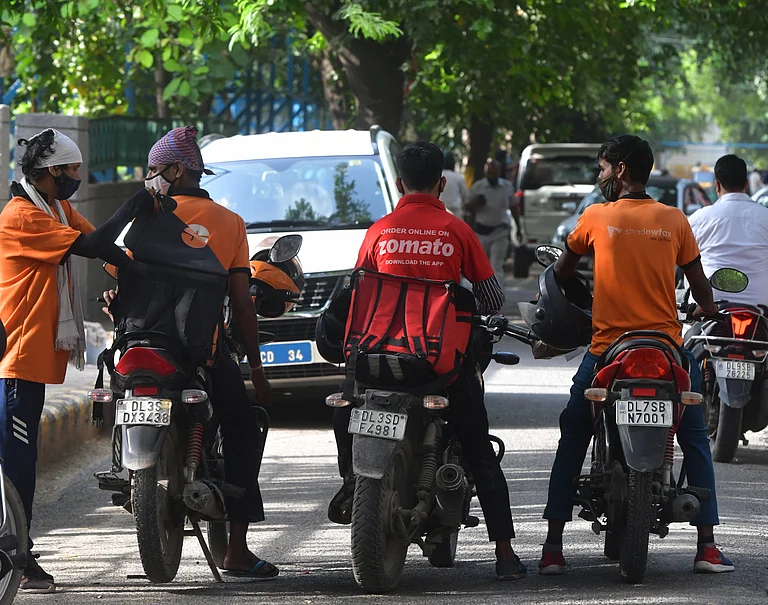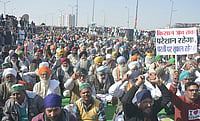Apple supplier Foxconn is planning to increase the size of its workforce in India four times over the next two years, according to a report.
The report comes at a time when Foxconn is facing disruption in manufacturing iPhones in China as 'Zero Covid' curbs in the country disrupt production.
Reuters reported two Indian government officials as saying that Foxconn plans to recruit 53,000 more workers over the next two years and expand its worforce to around 70,000 in India.
Foxconn opened up a plant in India in 2019 and began manufacturing iPhones earlier this year. It's a Taiwan-based company that also manufactures for other companies but Reuters reported that the expansion in India is mainly due to the disruption in production for Apple because of Chinese policies.
The report comes weeks after hundreds of Chinese workers fled the Foxconn plant in Henan province's Zhengzhou city over severe Covid-19 curbs imposed on them under China's 'Zero Covid' policy. A large number of workers jumped fences at Foxconn's Zhengzhou plant and walked hundreds to kilometres to their home towns.
The Zhengzhou plant is Foxconn's largest in the world where it employs around 2,00,000 workers. Workers at the plant were reportedly held in quarantine after some of them tested positive. As a result, desperate workers jumped fences and walked hundreds of kilometres to their hometowns. Footage of such escapes and long walks home surfaced on the internet. Several reports claimed they were forced to walk in the absence of any transport services.
What did the report say?
The Reuters report said that Foxconn's planned expansion in India "is central to Apple's efforts to shift production away from China".
The report said the Tamil Nadu government and Foxconn are currently "finalising" plans for the expansion.
"The state [Tamil Nadu] was having discussions with the suppliers to address issues such as housing facilities for workers as it looked to expand," reported Reuters, adding that officials are pursuing Apple suppliers to expand iPhone manufacturing beyond assembly.
In a separate report in September, JP Morgan analysts said Apple might be manufacturing 25 per cent of its iPhone in India by 2025.
A separate Bloomberg report said earlier Tata Group was in talks with Wistron to form a joint venture to assemble iPhones in India.
Apple and other companies have faced production disruption in China because of its Zero Covid policy. Not just production in China, but production elsewhere has also been affected as China is central to global supply chains and a disruption in China therefore affects production elsewhere too. In light of such disruptions, companies are looking to diversify procurement of components and manufacturing outside of China. With schemes like production linked incentive (PLI), India is trying to attrack such parties.
Following the Covid-19 outbreak in Foxconn's Zhengzhou plant, the plant was closed for seven days which disrupted the production timeline of up to 6 million Apple iPhones, reported Fortune.
Zero Covid policy in China
China's 'Zero Covid' policy is in contrast with the 'living with virus' approach the rest of the world has taken.
Under 'Zero Covid' approach, the Chinese authorities respond to Covid-19 infections with blanket lockdowns and tough quarantines with the idea of limited public movement in an area to eradicate the infections and trasnmission.
In the rest of the world, targeted measures such as quarantine of the infected, isolation of suspected contacts, and tracing of close contacts is carried out, and cities and towns are no longer locked down. Even when there are bigger outbreaks, particular apartment blocks or neighbourhoods get focussed measures rather than the broader city or town.
Through 2022, China has locked several millions of people for weeks and months in cities like Shanghai and Beijing under the 'Zero Covid' policy.
This has also affected China's economic growth. China's financial hub Shanghai and capital Beijing were locked down for months earlier this year.
"In March, an estimated 345 million people across 46 cities were in full or partial lockdowns, a population accounting for 40 per cent of GDP," said the think tank Center for Strategic and International Studies (CSIS) in a report.
Economists warn that China needs to boost growth that sank to 2.5 per cent over a year earlier in the first half of 2022, less than half the official annual target of 5.5 per cent, after Shanghai and other industrial centers shut down starting in late March to fight virus outbreaks.
China's economy is at risk of stalling due to the impact of epidemic prevention and control policies, said think tank Anbound Research Center.
The CSIS report cited above noted that mass testing, part of the Zero Covid policy, also comes at a huge financial cost — as much as 1.5 per cent of China's GDP.
"While the Chinese leadership believes that massively expanded mass testing will identify infections early and trigger measures to contain the outbreak without causing harmful disruption to the economy, it is still too early to know whether that approach will succeed. One thing is known: testing at this scale costs tens of billions of dollars, which may amount to 1.5 per cent or higher of China’s GDP," reported CSIS.
Anger against Zero Covid
In an extremely rare public display of anger against Chinese President Xi Jinping, banners appeared in Beijing earlier in October which called Xi a "tyrant" and "traitor" over 'Zero Covid' policies.
The banners called Xi a dictator and a tyrant, as per translations available on the internet, and called for the easing of restrictions under the 'Zero Covid' policy and said people should have rights and should not be treated like slaves.
Nobtably, the banners appeared days before the Communist Party of China (CPC) convened its 20th National Congress in which an unprecedented third presidential term was approved for Xi.
A translation by CNN journalist Selina Wang of some of the slogans read as "Go on strike. Remove dictator and national traitor Xi Jinping" and "Say no to covid test, yes to food. No to lockdown, yes to freedom".
Journalist Bill Birtles in a tweet explained why the protest was "extraordinary": "Extraordinary given pre-Congress security plus surveillance...Extraordinary given the politics and security just out from the Congress...Such a small protest elsewhere wouldn't be worth so much attention but in Beijing. If anything the other banner is all the more daring in pre-Congress Beijing, calling Xi Jinping a dictator and calling for strikes."


























